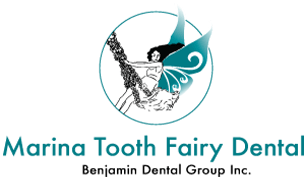A Surprisingly Healthy Way to Warm Up Your February.
February. Unless you’re a snowmobiler, skier, or ice-fisherman, it’s a month the rest of us wishes would pass as quickly as it begins. After all, frozen toes, creaky bones, and chapped lips aren’t usually physical afflictions one desires to endure on a daily basis. Even those of us in the south, who brave a more mild winter, will yearn for the days when a sweater is no longer required. Despite the cold, though, there is always something about February that helps to melt away all that freeze and warm us up both inside and out — Valentine’s Day. And, of course … chocolate. And, get this! Would you believe it can actually be good for your teeth?
So, how can chocolate be good for your teeth?
If you’re doing a little happy dance right now, you can continue … we’ll wait a moment. Okay, thanks. Yes, that’s not a typo. Chocolate can be good for your teeth. The problem is, most chocolate we consume is so loaded with sugar and calories that the benefits we gain remain minimal. That said, it’s always good to understand what makes the foods we consume good or bad for us, and since you’re likely to be consuming more than your typical quantity of chocolate this month, we thought we would help fill you in on chocolate’s teeth protecting qualities.
- Polyphenols! Scientists believe this antioxidant compound found in fruits and vegetables, tea, red wine, coffee, and chocolate, to name a few, helps reduce inflammation, cholesterol and high blood pressure, while also protecting from heart attack and stroke. When it comes to oral health, the perceived role of polyphenols in controlling inflammation could equate to a lesser incidence of gingivitis.
- Cocoa Butter! The velvety texture of cocoa butter not only helps make chocolate taste yummy and luxurious, but it also helps coat the teeth when we bite into our favorite February treat. This coating helps prevent plaque from sticking to the teeth shortly after consumption – another benefit for the much-maligned chocolate-shaped heart.
- Cocoa Husk? We’ve saved the best for last. Research over the past ten years has suggested the husk of the cocoa bean contains antibacterial properties that offset the destructive effects of sugar on teeth, and can actually boost the mouth’s ability to fight off the bacteria that cause tooth decay. Now, before you rush out and stock up on chocolate as result of this good news … here’s the bad news. For now, at least, the husk is actually disposed of when manufacturing the chocolate we consume today. And, while this may change in the future, in the short term, science is looking for ways to incorporate the beneficial properties of the husk into products such as mouthwash and toothpaste.
So, don’t be afraid of chocolate. As with everything in life, moderation is key, and chocolate can be a better choice for you than other types of sweets. Have fun. Enjoy yourself, stay warm, and be good to your loved ones this season. And make some new friends while you’re at it as well!
Source: Marina Tooth Fairy, Revenue Well – February Newsletter 2017
Remember: everything in moderation! Small doses of that rich, dark chocolate a day can give you a good amount of antioxidants which inhibits the proliferation of bacteria that will cause tooth decay.
Source: Jefferson Dental Care – July 07. 2014
